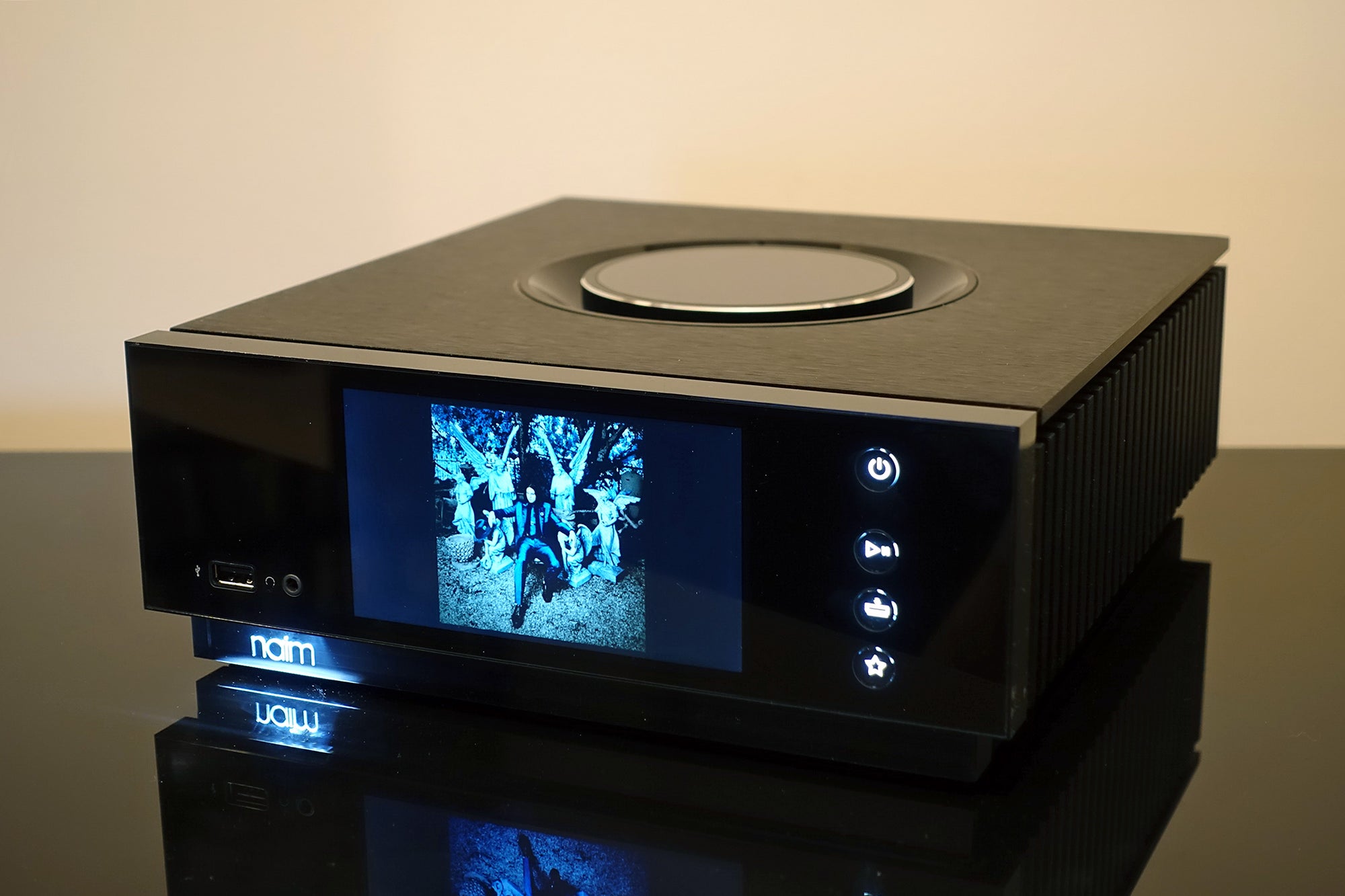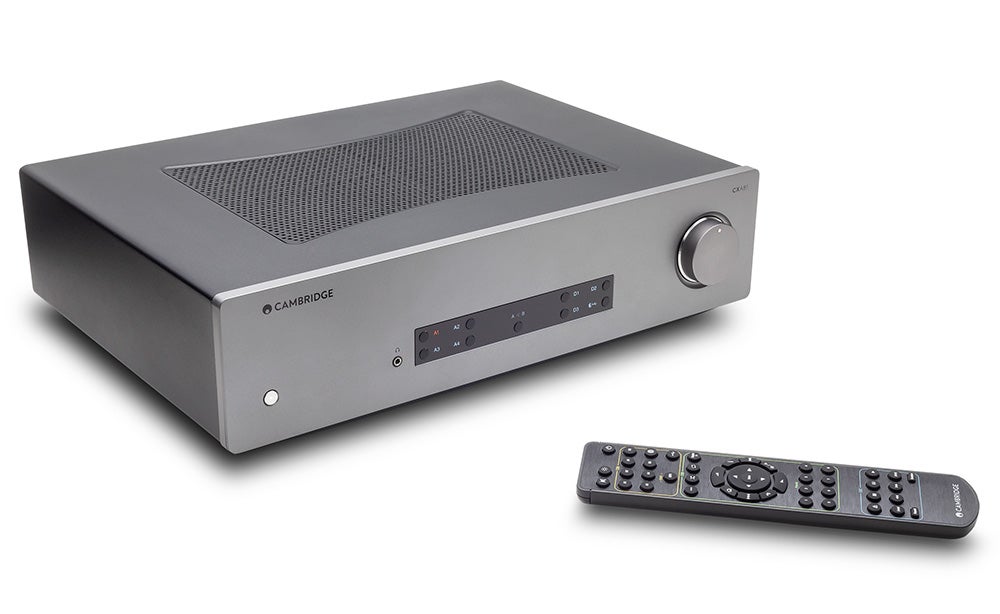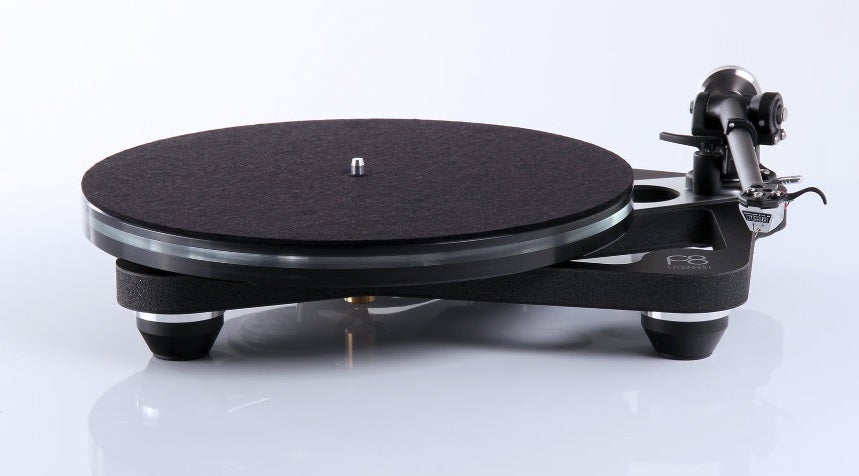Bluesound Pulse M Review
A stylish and great-sounding wireless speaker
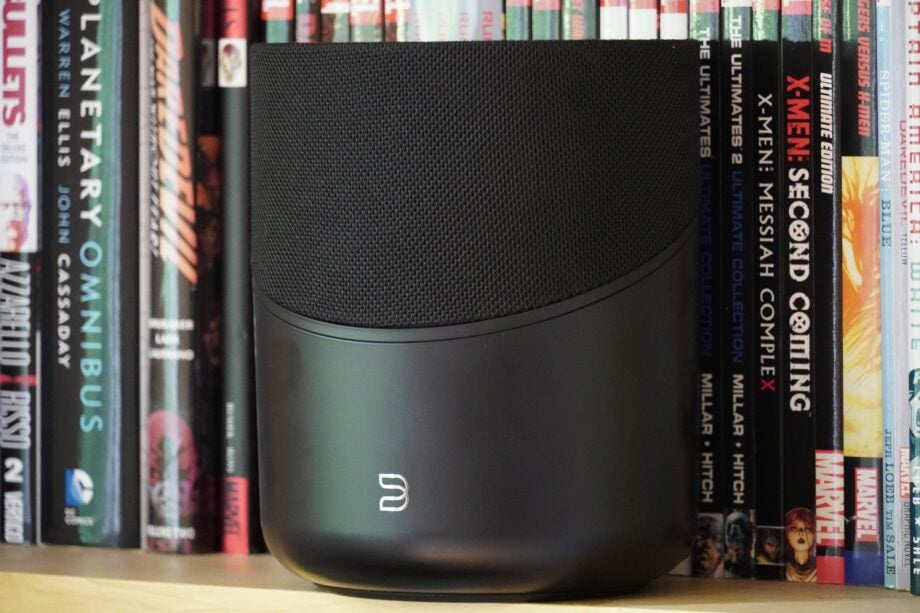

Verdict
An upgrade both in terms of style and audio on Bluesound’s previous wireless speakers, the Pulse M’s rich audio engages, and its feature set is wide-ranging. A wireless speaker graced with both style and substance.
Pros
- Rich, engaging audio
- Improved aesthetics
- BluOS is easy and intuitive to use
- Lots of connectivity options
- Relatively wide listening spot
Cons
- Cheaper speakers have added Dolby Atmos support
- Two-way Bluetooth doesn’t seem to work as advertised
Availability
- UKRRP: £449
- USARRP: $449
- EuropeRRP: €549
- CanadaRRP: CA$599
- AustraliaTBC
Key Features
- Omni-Hybrid driver set-upUpfiring woofer and two tweeters to deliver an immersive 360° soundstage
- Music streamingSupports Spotify/Tidal Connect, AirPlay 2, Bluetooth 5, Roon Ready
- Voice controlConnect to compatible device to allow for Alexa, Google and Siri hands-free control
Introduction
In a wireless speaker market that Sonos has dominated of late, the likes of Bluesound offer some form of resistance.
With the Pulse M, the Canadian audio brand is embracing style as much as it does function. Its previous speakers in the Pulse range were practical-looking speakers that produced good audio but were intended to be discreet – heard but not seen.
The Pulse M aims to be both seen and heard, graced with contemporary looks and a new Omni-Hybrid driver design to ensure the same level of performance from whatever angle you’re sitting at.
Aside from Sonos and Denon, the field is not overly competitive for one-box music systems in the £400 to £500 price bracket and is an area ripe for a brand to make a mark in.
Design
- Sleeker, curvier design
- Matte finish and glass top can attract fingerprints
- Lots of connection inputs
Bluesound products in the past could (and were) described as industrial in appearance. I wouldn’t say that about the Pulse M.
This is a much more attractive speaker than I’m used to from Bluesound. An effort has been made to improve the aesthetics and court the type of audience that appreciates good sound but also likes good looks. Finishes come in black or white versions, depending on your home décor.
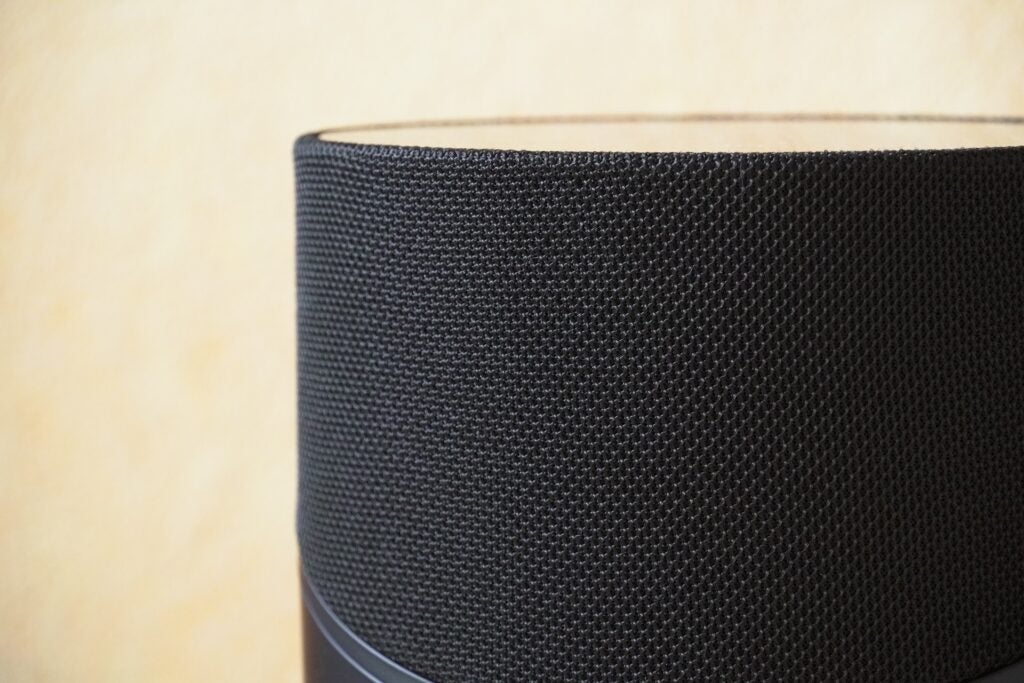
The Pulse M has a similar, rounded shape as the Sonos Move, though it’s smaller and more fashionable. The bottom half features a matte black finish that’s prone to smudges and while they can be easily wiped off it isn’t the kind of maintenance you want to be doing.
Direct your eyes further up and there’s a fabric cover around its midriff, which ideally is the place to hold the Pulse M if you’re lifting; and then the nicest part is the glass top surface (also prone to smudges).
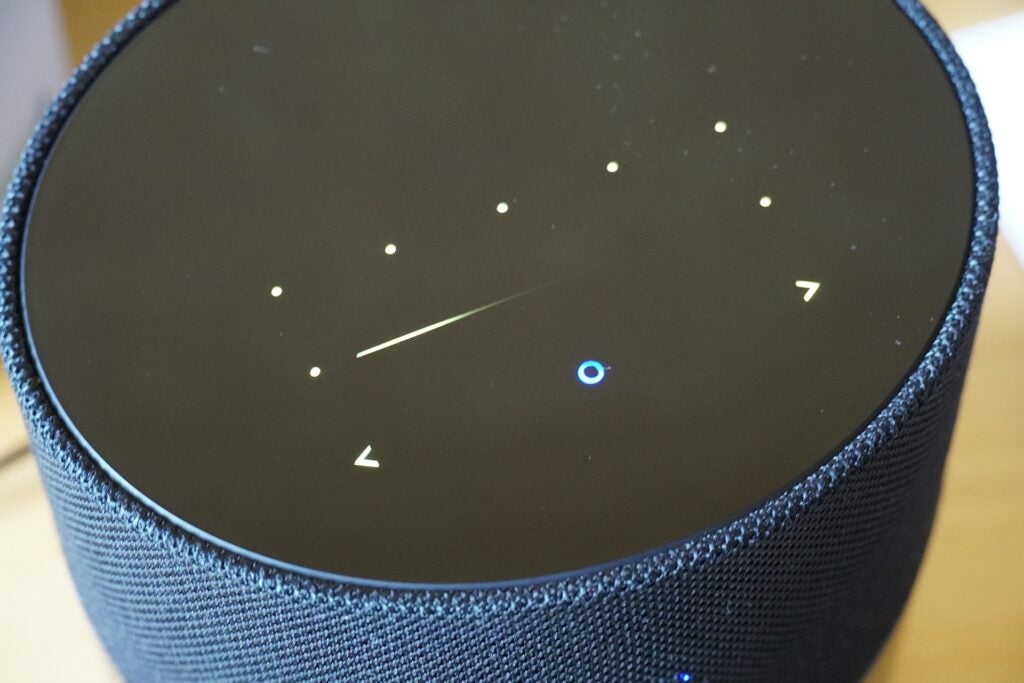
Similar to the Denon Home series, the touch screen lights up via detection by proximity sensors. Compare it to Bluesound’s previous speakers and it’s easily a step up. Inputs include a volume slider, playback buttons and five programmable presets.
Around the rear is a selection of inputs that include a headphone jack, USB, Ethernet for a hardwired connection, and an Optical input with an adapter for a 3.5mm stereo input. The Pulse M can wirelessly connect to a subwoofer for more bass.
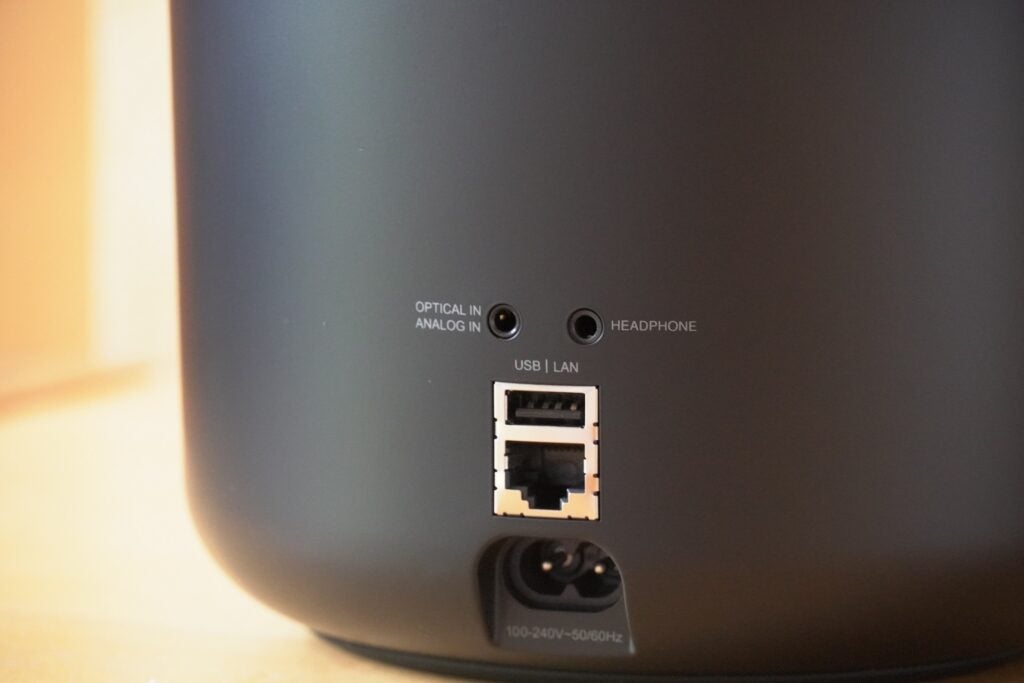
Features
- BluOS interface
- Two-way Bluetooth
- No Chromecast
At the centre of the Pulse M’s proposition is Bluesound’s BluOS app. It’s the heart of virtually everything this wireless speaker can do.
It’s not a ‘smart’ speaker as such, but with BluOS there’s ‘Works with’ Alexa/Google compatibility whereby connecting to another device provides hands-free control. There’s also Siri support for iOS users to add voice control too.
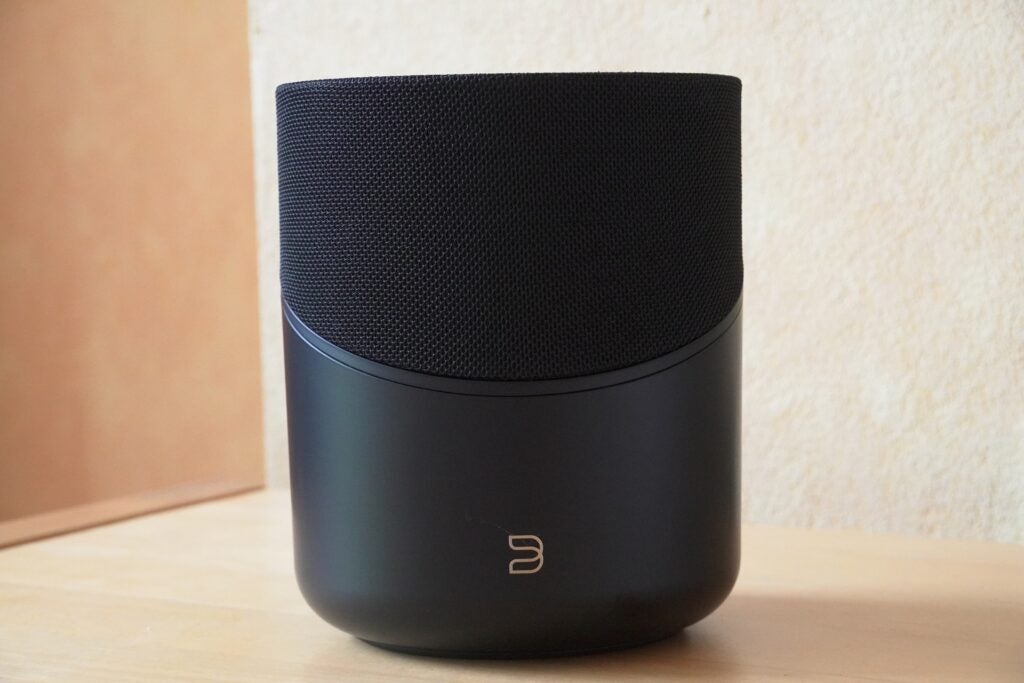
Wireless connections include Wi-Fi (naturally), Bluetooth 5.0 (aptX-HD), as well as Spotify Connect, Tidal Connect, Roon Ready and AirPlay 2. There’s no Chromecast on this device, which might be a surprise to some, but given its limitations (no MQA support), perhaps not too surprising. MQA support is built-in to the BluOS platform.
With BluOS to assist, set-up of the Pulse M is swift, the LED on the speaker’s front/top surface indicates its current state and better still, it can be viewed from multiple directions to understand what’s happening at a glance.
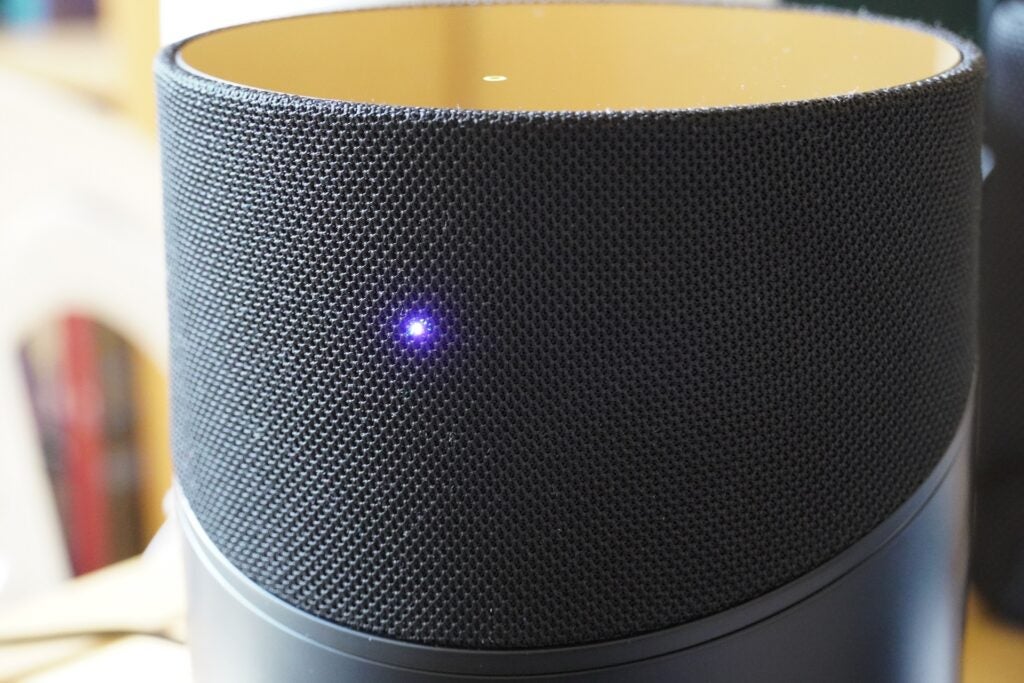
During playback the app will show the track’s resolution (CD for CD quality, HR for High-Res, etc), and having tested AirPlay 2 (with podcasts), Tidal Connect and Spotify, they all worked on my home Wi-Fi connection without much of an issue aside from some strange pausing which I believe is down to the Tidal app. Metadata is provided by several services to provide track information, which includes Amazon Music, Tidal and Qobuz.

If you have other Bluesound products in the home, multi-room is possible by simply connecting the speakers to one another in the BluOS app. It synchronises well too, with the ability to play music at the same time. Purchase two Pulse M’s and they can act as rear speakers in a Bluesound-derived home cinema set-up.
You can also connect a USB drive full of music to the speaker, but Bluesound recommends a wireless connection (or NAS drive) in this circumstance, and I’d agree. It can take ages to read a USB stick and all the music files – in one case it took over ten minutes to read in the region of 10,000 files or so.
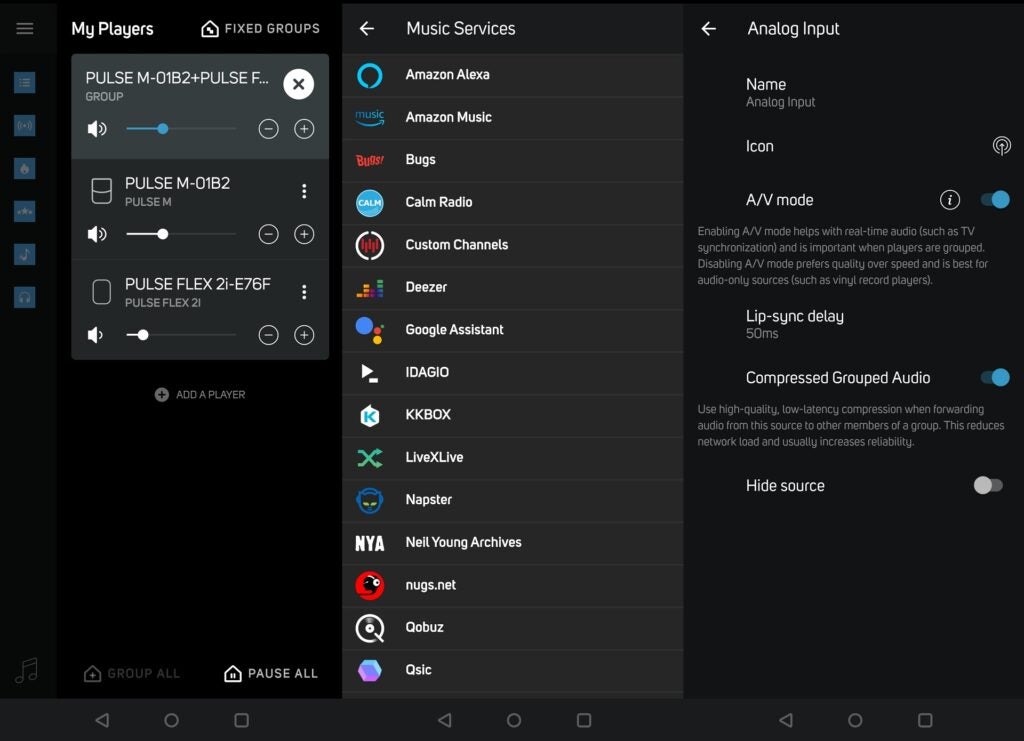
For those who indulge in smart home support, control systems such as Crestron, Control4, RTI, ELAN, URC and Lutron are all listed.
There’s support for two-way Bluetooth, which allows a Bluetooth signal to travel in both directions. For example, you can connect a mobile device to the Pulse M and play music to it; or connect a headphone and stream music from the speaker to the headphones. But for whatever reason, it took me ages to connect a headphone to the speaker, and when I did, I couldn’t get any music to play.
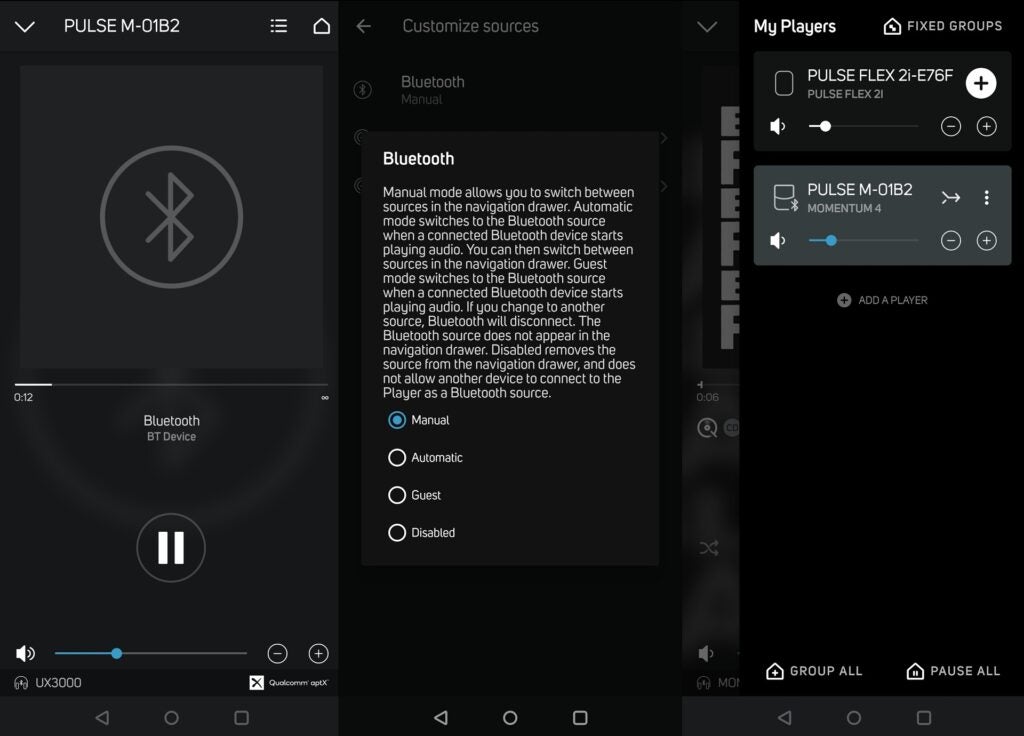
Sound Quality
- Rich, dynamic performance
- Big and loud sound
- Can lack energy at lower volumes
Bluesound has made a big song and dance about the Pulse M’s Omni-Hybrid driver that allows for a 360-degree soundscape, but don’t mistake this as being a Dolby Atmos speaker in the same vein as the Amazon Echo Studio, Apple HomePod 2 or Sonos Era 300 (which costs the same).
The Omni-Hybrid driver design disperses the soundfield evenly, so no matter where you’re sitting you should still get a similar level of audio quality.
And I found that to be true for the most part. There’s no massive discrepancy or difference sitting around the speaker. I can hear a slight difference sitting behind the speaker; from there it does seem as if the sound is coming from the speaker’s front, so while there is a point of origin, sound travels well around the speaker.
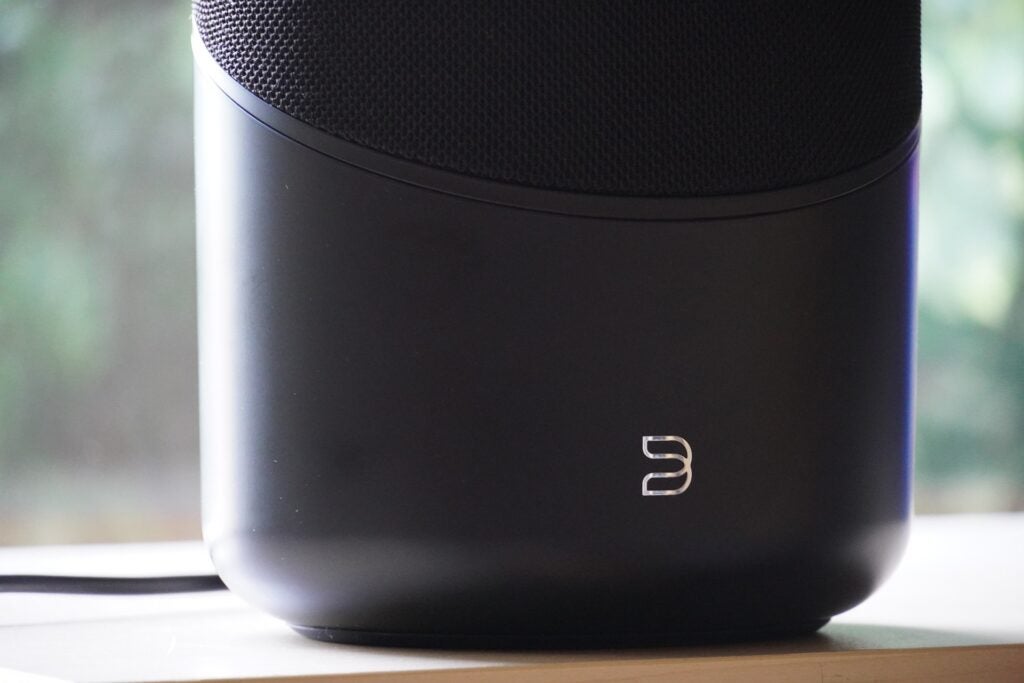
In terms of the audio, rich is the first word that comes to mind. Beck’s cover of Old Man has a rich tone to the midrange, especially how rich and vibrant the strums of the guitar stand sound. But this is not at the expense of detail or clarity as can be the case with rich-sounding wireless speakers.
It’s a lively, effervescent performance with a firm expression of the low end of the frequency range. Beck’s voice is loud and clear, and again that warmth is present, but his voice remains expressive.
The soundstage doesn’t extend much from the speaker, but conversely the Pulse M sounds large enough to fill a medium-sized room at mid-volume levels. And while the soundstage doesn’t extend further than the dimensions of the speaker, there’s no sense in my mind the Bluesound speaker describes it in anything less than spacious terms.
With LMP’s Yellow there’s that rich bass provided in a way that’s textured and weighty. That said, the Pulse M is no mere bass bomber, a Hi-res audio file of Miles Davis’ Shh/Peaceful features crisp cymbal crashes and at times bright top end to describe to the trumpet performance. I do like the sharpness of the cymbal crashes, it gives the Bluesound more pizzazz in this area of the frequency range.
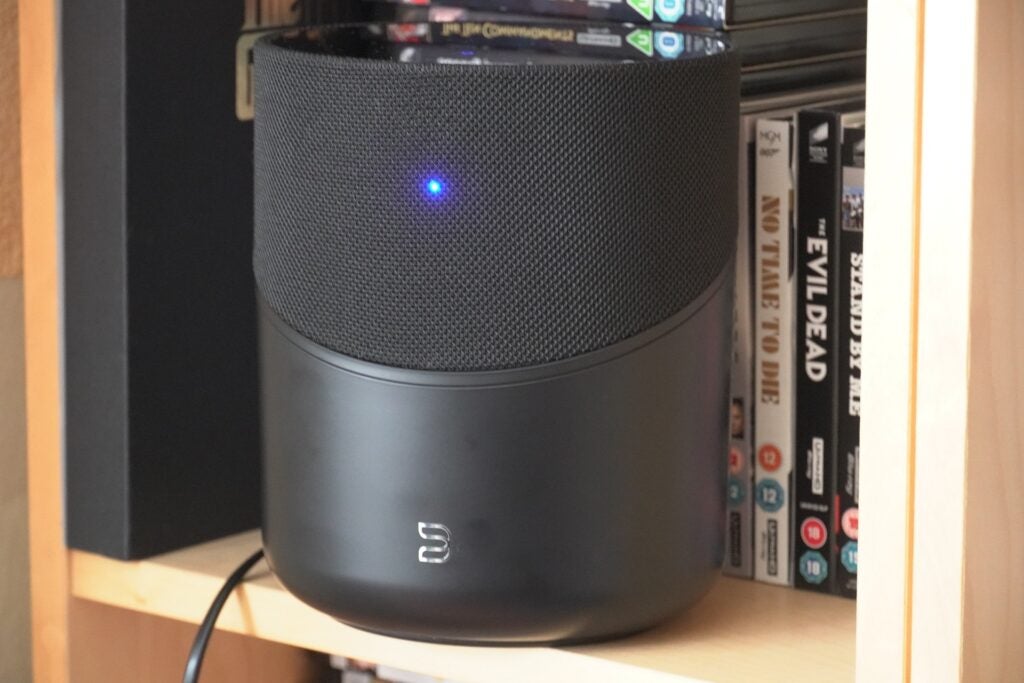
The Pulse M doesn’t look too kindly on MP3 files. A compressed file of Prince 1999 is short of definition, detail and clarity compared to a streamed version on Qobuz, which also offers punchier bass and snappier dynamism. And the speaker isn’t great at lower volumes either, sounding slightly drowsy.
Back at normal listening levels and Mitski’s Stay Soft is treated to a clear vocal performance that sits above the rest of track, though perhaps the Bluesound Pulse M isn’t as bright with the treble in this instance. Again, the bass is powerful and punchy, but the energy is the biggest takeaway from the speaker, a rhythmically infectious performance backed by plenty of power. In full flow, the Bluesound is a lively, versatile performer
Latest deals
Should you buy it?
If you want high-quality sound no matter where you sit: The Bluesound’s Omni-Hybrid driver set-up is not Atmos compatible, but the way it disperses sound produces a consistent performance wherever you are in relation to it.
If you are interested in Dolby Atmos: The Apple HomePod 2 and Amazon Echo Studio are both cheaper and support Atmos, while the Sonos Era 300 is shaping up to be a direct challenger to the Pulse M.
Final Thoughts
After producing solid-sounding, respectable speakers it feels the Pulse M is more of a statement. It’s a fine-looking speaker with a rich, detailed sound and a wide feature set for a wireless speaker. BluOS offers an easy and intuitive means of interacting with the speaker.
It’s not perfect, it sounds less than enthused at lower volumes, the two-way Bluetooth doesn’t appear to work as it should, and perhaps the lack of Dolby Atmos support could be a weak spot as more speakers support it.
Nonetheless, the Pulse M sounds great and packs loads of features. If this is the beginning of a new range of speakers, then it’s a strong start.
How we test
We test every wireless speaker we review thoroughly over an extended period of time. We use industry standard tests to compare features properly. We’ll always tell you what we find. We never, ever, accept money to review a product.
Find out more about how we test in our ethics policy.
Tested for three weeks
Tested across a range of sources
Tested with a range of audio files
FAQs
While the Pulse M can disperse audio in a 360-degree soundfield, it does not feature any support for immersive audio formats such as Dolby Atmos.
Full specs
Sustainability
Trusted Reviews’ holds the fact that global warming is not a myth as a core value and will continuously endeavour to help protect our planet from harm in its business practices.
As part of this mission, whenever we review a product we send the company a series of questions to help us gauge and make transparent the impact the device has on the environment.
We currently haven’t received answers to the questions on this product, but will update this page the moment we do. You can see a detailed breakdown of the questions we ask and why in our sustainability info page.


